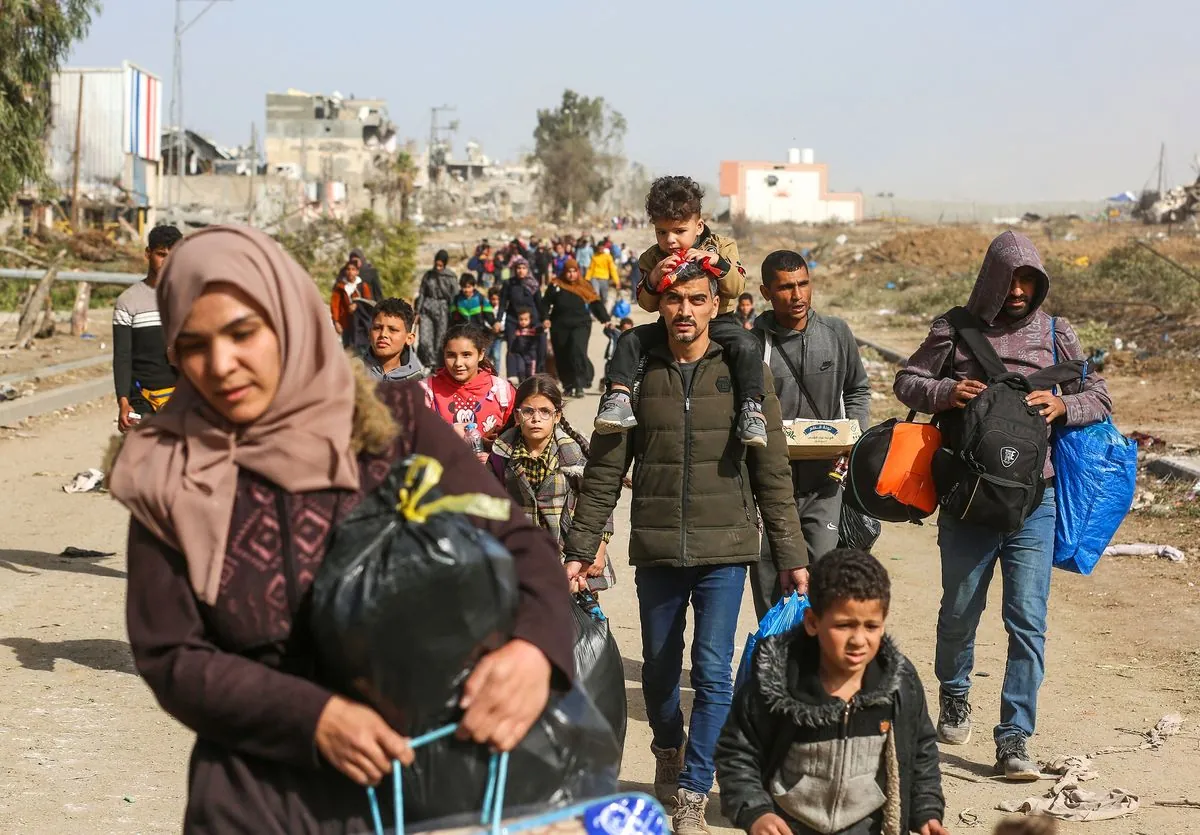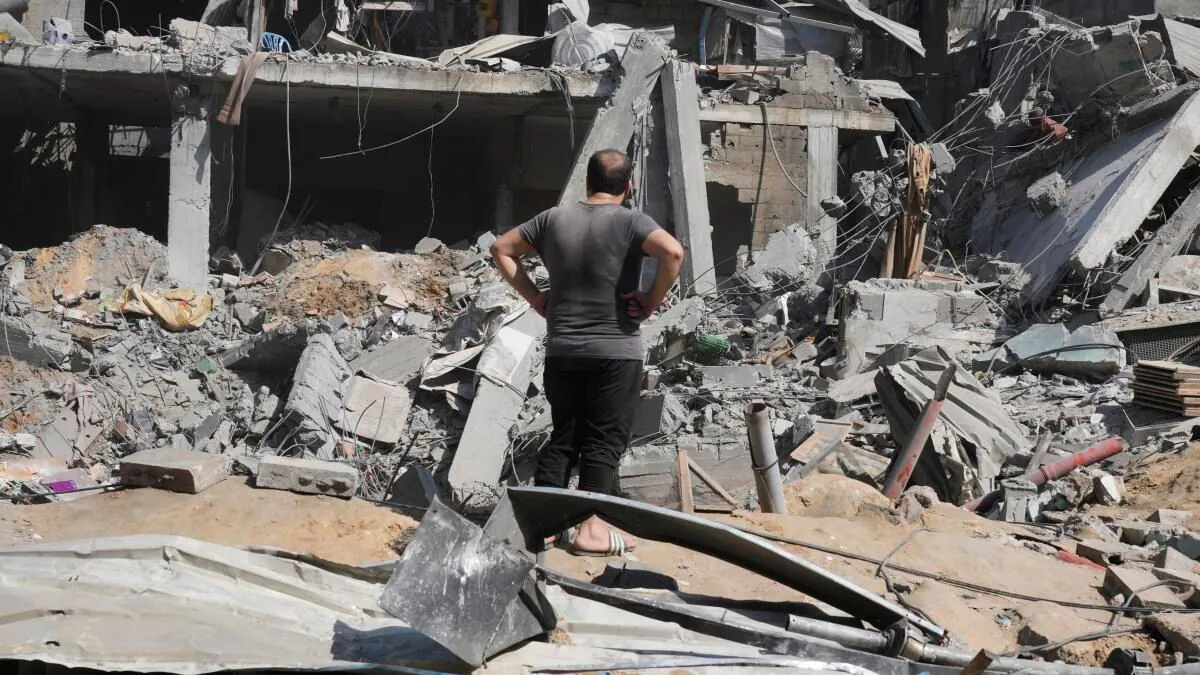Gaza Evacuations Intensify as Deadly Strike Hits Shelter
Israeli military orders new evacuations in southern Gaza following a lethal airstrike on a school shelter. Displaced Palestinians face dire conditions as the conflict enters its 10th month.

In the ongoing conflict in the Gaza Strip, one of the world's most densely populated areas, Israeli forces have issued fresh evacuation orders for parts of southern Gaza. This directive comes in the wake of a devastating airstrike on a school-turned-shelter in the northern region, which local health authorities report claimed at least 80 Palestinian lives.
The Israeli military stated that the strike targeted a militant command post, resulting in the deaths of at least 19 fighters. However, the Gaza Health Ministry disputes this claim, reporting a significantly higher civilian casualty count.

The conflict, now in its 10th month, has led to widespread displacement of Gaza's 2.3 million residents, many of whom have been forced to relocate multiple times. Hundreds of thousands have sought refuge in makeshift tent camps or crowded shelters, including schools like the one struck on Saturday.
"We don't know where to go. This is my fourth displacement."
The humanitarian crisis in Gaza continues to worsen, with aid groups struggling to address the needs of the population. The Gaza Strip, under blockade by Israel and Egypt since 2007, faces severe challenges including water scarcity and limited access to essential resources. The territory's only power plant frequently operates at reduced capacity due to fuel shortages, exacerbating the dire living conditions.
The conflict has had a devastating impact on Gaza's economy, which already suffered from one of the world's highest unemployment rates. Key sectors such as agriculture and fishing have been severely affected, with restrictions on land use and maritime access hampering economic activities.
International reactions to the recent events have been swift. European leaders condemned the strike on the school shelter, while U.S. Vice President Kamala Harris expressed concern over civilian casualties and called for an immediate ceasefire and hostage deal.
As the conflict persists, the Gaza Strip's rich archaeological heritage, including ancient Greek and Roman ruins, faces potential damage. The ongoing violence and displacement threaten not only the lives of civilians but also the cultural and historical legacy of the region.
The United Nations Relief and Works Agency (UNRWA), which operates many schools in Gaza, continues to play a crucial role in providing shelter and support to displaced Palestinians. However, the UN human rights office reports systematic attacks on schools since July 4, 2024, resulting in hundreds of casualties, including women and children.
As the situation in Gaza remains volatile, the international community continues to push for a resolution to the conflict, emphasizing the urgent need for humanitarian aid and a path towards lasting peace in the region.


































